Related Research Articles

John Barrymore was an American actor on stage, screen and radio. A member of the Drew and Barrymore theatrical families, he initially tried to avoid the stage, and briefly attempted a career as an artist, but appeared on stage together with his father Maurice in 1900, and then his sister Ethel the following year. He began his career in 1903 and first gained attention as a stage actor in light comedy, then high drama, culminating in productions of Justice (1916), Richard III (1920) and Hamlet (1922); his portrayal of Hamlet led to him being called the "greatest living American tragedian".
The Barrymore family is an American acting family.

Joan de Beauvoir de Havilland, known professionally as Joan Fontaine, was a British-American actress who is best known for her starring roles in Hollywood films during the "Golden Age". Fontaine appeared in more than 45 films in a career that spanned five decades. She was the younger sister of actress Olivia de Havilland. Their alleged rivalry was well-documented in the media at the height of Fontaine's career.

Dorothy Hackett McGuire was an American actress. She was nominated for the Academy Award for Best Actress for Gentleman's Agreement (1947) and won the National Board of Review Award for Best Actress for Friendly Persuasion (1956).
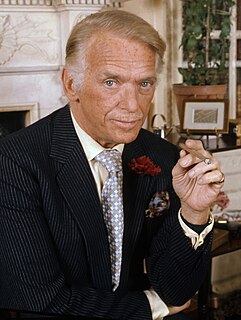
Douglas Elton Fairbanks Jr.,, was an American actor and producer, and a decorated naval officer of World War II. He is best known for starring in such films as The Prisoner of Zenda (1937), Gunga Din (1939) and The Corsican Brothers (1941). He was the son of actor Douglas Fairbanks and was once married to Joan Crawford.
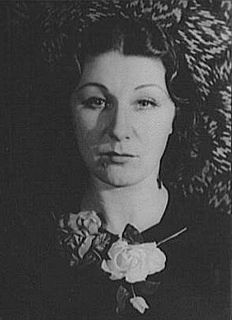
Dame Frances Margaret Anderson,, known professionally as Judith Anderson, was an Australian actress who had a successful career in stage, film and television. A preeminent stage actress in her era, she won two Emmy Awards and a Tony Award and was also nominated for a Grammy Award and an Academy Award. She is considered one of the 20th century's greatest classical stage actors.

Margaret Lockwood, CBE, was an English actress. One of Britain's most popular film stars of the 1930s and 1940s, her film appearances included The Lady Vanishes (1938), Night Train to Munich (1940), The Man in Grey (1943), and The Wicked Lady (1945). She was nominated for the BAFTA Award for Best British Actress for the 1955 film Cast a Dark Shadow. She also starred in the television series Justice (1971–74).
John Lee Mahin was an American screenwriter and producer of films who was active in Hollywood from the 1930s to the 1960s. He was known as the favorite writer of Clark Gable and Victor Fleming. In the words of one profile, he had "a flair for rousing adventure material, and at the same time he wrote some of the raciest and most sophisticated sexual comedies of that period."

The Devil and Miss Jones is a 1941 comedy film starring Jean Arthur, Robert Cummings, and Charles Coburn. Directed by Sam Wood from a screenplay by Norman Krasna, the film was the product of an independent collaboration between Krasna and producer Frank Ross. Their short-lived production company released two films through RKO Radio Pictures. The film was well received by critics upon its release and garnered Oscar nominations for Coburn and Krasna.

Leopold John "Leo" Genn was an English actor and barrister. He is perhaps best known for his role as Petronius in the 1951 film Quo Vadis, which earned him an Academy Award for Best Supporting Actor nomination.
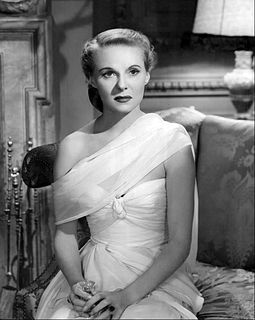
Dorothy Ann Todd was an English actress, singer and film producer.

Elizabeth Ada "Betty" Bronson was an American film and television actress who began her career during the silent film era.
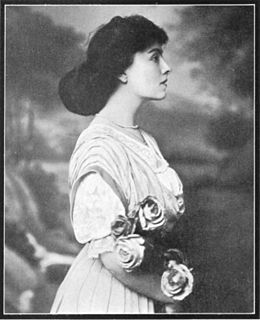
Mary Nash was an American actress.

Violet Ethelred Krauth, better known by the stage name Marian Marsh, was a Trinidad-born American film actress and later an environmentalist.
Robert Woodruff Anderson was an American playwright, screenwriter, and theatrical producer. He received two Academy Award nominations for Best Writing, Screenplay Based on Material from Another Medium, for the drama films The Nun's Story (1959) and I Never Sang for My Father (1970).
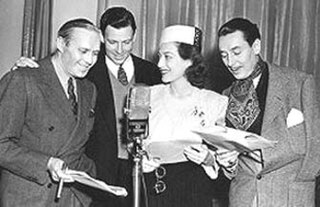
The Screen Guild Theater is a radio anthology series broadcast from 1939 until 1952 during the Golden Age of Radio. Leading Hollywood stars performed adaptations of popular motion pictures. Originating on CBS Radio, it aired under several different titles including The Gulf Screen Guild Show, The Gulf Screen Guild Theater, The Lady Esther Screen Guild Theater and The Camel Screen Guild Players. Fees that would ordinarily have been paid to the stars and studios were instead donated to the Motion Picture Relief Fund, and were used for the construction and maintenance of the Motion Picture Country House.
Mary C. McCall Jr. was an American writer best known for her screenwriting. She was a charter member and the first woman president of the Writers Guild of America, serving from 1942–44 and 1951–52.
Ruth Goetz was an American playwright, screenwriter, and translator along with her husband and collaborator Augustus Goetz.

The Ginger Rogers filmography lists the film appearances of American actress Ginger Rogers, as well as her television, stage, and radio credits. Rogers's career spanned fifty-seven years, from 1930 to 1987.
Hallmark Playhouse is an American old-time radio dramatic anthology series. It was broadcast on CBS from June 10, 1948 until February 1, 1953, and was described by one author as "a program that consistently produced the highest levels of production quality and value." Beginning on February 8, 1953, the program underwent changes of title, host, and format. It was broadcast as The Hallmark Hall of Fame until March 27, 1955, still on CBS.
References
- ↑ "James Barrie - Echoes of the War". Classic Literature Library.
- ↑ Kirby, Walter (3 February 1952). "Better Radio Programs for the Week". The Decatur Daily Review. p. 40. Retrieved 3 June 2015– via Newspapers.com.

- ↑ "E. & L. Barrymore With Fairbanks, Jr., Star on Screen Guild Players". Harrisburg Telegraph. 5 October 1946. p. 17. Retrieved 2 October 2015– via Newspapers.com.
